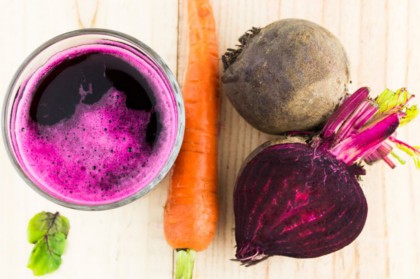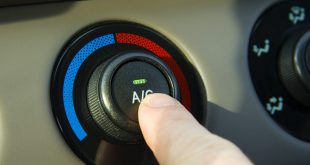
Throwing back a glass of beet juice pre-workout has said to improve endurance and performance, but now it seems this pretty, purple vegetable could do wonders for your next hike or exercise program. You know, if your goals include tackling Everest or don’t mind a bit of high-altitude training.
New research from the journal of Nitric Oxide: Biology and Chemistry might have found the answer to acute mountain sickness (AMS) in high altitude regions. Generally, the higher you go up, the more your blood vessels restrict, minimising the amount of oxygen you can pass around your body. And because there are lower air pressures in high altitudes, the body struggles to take up oxygen causing altitude sickness.
To break it down, your body produces nitric oxide (NO) naturally, the component your blood vessels need for normal function, but at high altitude, this is restricted because NO requires oxygen for production.
So, what’s so clever about beet juice is that it’s rich in nitrate! And the body is then able to convert this ingredient to NO.
The study involved sending participants on a 39-day expedition to Kathmandu and at 3700 metres in the Rolwaling Valley, Nepal, to see how nitrate-rich beetroot juice might affect acclimatisation.
During the course of the 39-days, blood vessel function was measure with a standard test of arterial endothelial function, a flow-mediated dilatation test (FMD) that uses ultrasound.
Both men and women took part in this study and were monitored with an ultrasound to check their blood vessel function, before and during the high altitude expedition. And as we had hoped, high altitude made blood vessels contract.
In order to be sure the results they were seeing were correct and to see if the blood vessels would then relax, the individuals were also asked to drink two types of beet juice with a 24-hour break between tests. One contained high amounts of nitrate, while the other had zero nitrate (a placebo). Neither the study subjects nor the researches knew which juice they were drinking before the blood vessel function was measured, it was all at random.
The results? Mighty impressive. The study showed that the beet juice containing higher levels of nitrate made the blood vessels relax and return to normal function, while the placebo didn’t have any effect at all.
“Next time you plan a trip at high altitude, maybe it is worth carrying a bottle of beet juice in your backpack,” said the study’s corresponding author, Svein Erik Gaustad.
“It may be the extra boost your body needs to deliver enough oxygen to your tired muscles and keep you healthy when you are climbing a high mountain.”
Source: bodyandSoul
 We are sharing information for knowledge. Presented by. SocialDiary.Net
We are sharing information for knowledge. Presented by. SocialDiary.Net



